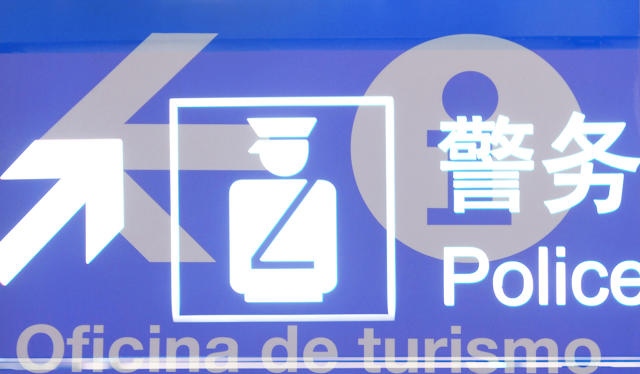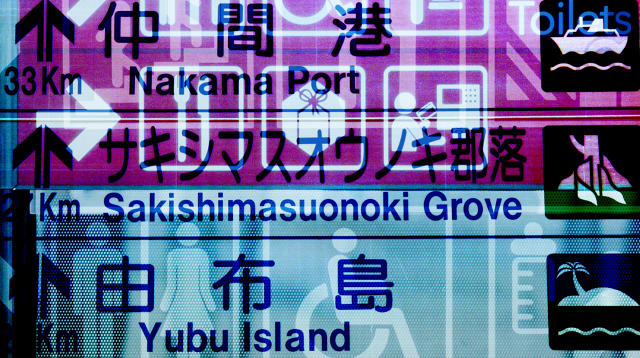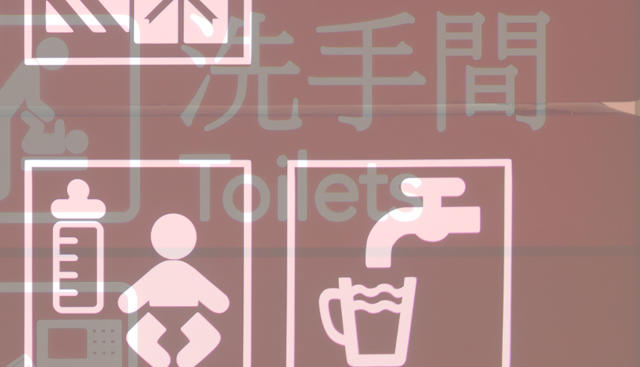
Despite the increasing ability to reach foreign customers, the lack of quality translation methods is still the most challenging aspect of global expansion. Currently, even using the most advanced software services are an expensive, complicated, and inaccurate process. The result is that too often, businesses sacrifice millions of dollars in profit because marketing to global consumers is too complex to be worthwhile.
Nearly half the world speaks two or more languages—that’s 3.65 billion people with the potential to contribute to translation.
That’s why we need an era of "Big Translation," to leverage our existing technological tools and scale up translation capabilities to a level that actually matches global communication needs. Big Translation, a large-scale translation efforts by people speaking two or more languages, would allow businesses, individuals, and even tweeters to get what they want translated easily and affordably.
The idea is banking on the fact that the world certainly isn’t lacking in translation talent. Nearly half the world speaks two or more languages—that’s 3.65 billion people with the potential to contribute to translation. Presently, a number of innovators are trying to tap into our world's language talent. Chief among them is the groundbreaking idea that bypasses traditional translation tools and moves to a more accessible mobile app platform.

In just six years (2020), there will be 6.1 billion smartphone users. If even just a fraction of these users were to be bilingual, the sheer human translation power we would be able to tap into through mobile translation platforms would far exceed the computational capacity of any machine translation system. Translation could finally be fast and inexpensive but also guarantee the complete accuracy of human translation. Allowing smartphone users to provide quality translation in real time will help shape the on-demand marketplace—a marketplace that has has already attracted more than .8 billion in investment. Companies like Uber, AirBnB, and now translation startups like my company, Stepes, are defining the competitive edge in the sharing economy.
Big Translation would fundamentally change how we can do business internationally. Downstream, it will affect how we access information, receive entertainment, and spend our free time. In other words, Big Translation has the potential to change the way we live our lives. In a world where anyone could get fast and easy translations, what could we accomplish?
Facebook has gone global. Of its nearly one billion active users, the majority live outside North America and Europe. Ironically, though, even as the world has gotten more connected, we are still unable to understand the majority of what is being said, with much of the social media networks cluster domestically rather than link up globally.
The scope of your social media content is limited by language.
Much of what we post online stays in its native language. That’s the problem. Tweeting in French is only interesting and accessible to others that read and understand French. The scope of your social media content is limited by language, effectively cutting out potentially a much larger audience who would be interested in your content due to opaque language barriers.
That’s a problem for businesses and entrepreneurs who are increasingly relying on social media to promote their services and products or reach a wider audience. For global businesses or cosmopolitan entrepreneurs who do want to reach multiple markets, they either have to hire a translation company or manage their own team of in-house translators. Unfortunately, there is no traditional solution that allows this kind of large-scale, user-generated content to be simultaneously translated at high quality into different languages in real time and on-demand.

Big Translation would also complement the shift in the way we consume news, now that social media is the quickest and most direct way of obtaining up to date and live coverage. The majority of Americans now cite Facebook and Twitter as major sources for news; social media has even become a crucial news-gathering tool during natural disasters. Being able to read media and journalism in different languages would do much to improve mutual understanding between countries and diminish cultural bias in reporting. To do that though, we need Big Translation to work its magic on the digital content that is produced daily.
Social media has become an important political tool as well, whether it’s facilitating a public debate unfolding online, a tool for mobilizing voters, or a catalyst for political protest. That social media could have an even larger audience (and a bigger impact) if the most important content were translated into multiple languages and more netizens could participate.
The e-commerce world is booming, particularly in Asian countries where the proliferation of Internet, 4G, and smartphone access has led to explosive growth in online shopping. Countries like China and India are leading this e-commerce wave; giants like China’s Alibaba and India’s Flipkart are collectively posting double digit growth each year, generating revenue of more than half a trillion dollars annually.
Those numbers could be even bigger if online retailers could reach more customers. The United Arab Emirates has seven spoken languages; the Philippines has a whopping 182; Indonesia has over 300. You get the idea. To really achieve full market access, e-commerce sites will need to adapt their websites, product names, and product descriptions for each region’s major institutional languages. To achieve this, the amount of content that would need to be translated each day is astounding: thousands of new products from independent vendors are uploaded every hour on the biggest e-commerce sites. Until now, handling this kind of content at such quantities was impossible to manage.
A faster, more affordable model of translation would give e-commerce sites and their independent retailers a way to reach more potential customers, turning what is already a thriving industry into one that is truly booming.
When the last Republican presidential primary election debate was taped in the U.S. last month, a team of Chinese volunteer translators set out to translate and subtitle the entire debate for Chinese audiences. Their efforts represent a larger interest in cross-cultural entertainment and news and the lack of resources for entertainment platforms and channels to distribute their content to a more global audience.
If translation were more easy and accessible, we wouldn’t have to rely on patchwork networks of volunteers to translate TV show subtitles or political events. The most popular TV shows or important current events could be subtitled and ready to air in tens of languages within hours for global consumption. American media is the most widely globally watched content, but Big Translation would give less mainstream content produced in more obscure languages the opportunity to reach a wider, worldwide audience.

Another challenge for achieving seamless global entertainment will be finding translators for more obscure languages. Out of the world’s 6,500 spoken languages, only around 5% are European languages, and in many countries in Africa, Asia, and the Middle East incredible linguistic diversity predominates. To address this, Big Translation will need to tap into the language talents of an unprecedented number of bilingual people speaking nearly every commonly-used language today by giving everyone a way to participate in translation through their smartphones.
Given that much of our perceptions of the world and each other are shaped by the entertainment and media we consume, creating a global entertainment ecosystem where media can easily leapfrog across language borders is crucial. At the heart of such an effort will be Big Translation.
For years, our technology has been designed in places like Silicon Valley, Berlin, and Tokyo and then manufactured more cheaply in Asian countries with lower labor costs. Now those countries in Asia are starting to design and produce their own software and products.
Big Translation would give less mainstream content produced in more obscure languages the opportunity to reach a wider, worldwide audience.
The challenge now is to make sure that all these technology interfaces are adapted to different markets, and that includes translating all the text within the device to the user’s native language. On top of interface localization, technology companies also have to make sure their technical documentation—user manuals, technical product descriptions, product names, and the like—are also error-free and easy to understand in a wide array of languages.
In some of the world’s growing markets, this is actually a huge challenge. India, for example, now mandates that all feature phones in the country be compatible with the local language where it is sold, a big move as India has 22 major languages and 13 different scripts. The country’s "Digital India" program has been working to connect more citizens with government services through digital means, a reflection of the combined reach that technology and language can have. Unfortunately, traditional translation paradigms would quickly be overloaded if tasked with handling cross-cultural communication at this scale.
Technology has already allowed citizens to connect with their governments, businesses with customers, and users with one another. Now Big Translation can help us tackle the enormous amount of interface localization and technical translation that is building up as people innovate faster than we can translate.
As the world economy continues to become ever more globalized, large scale, quality translation efforts by humans are sorely needed to bridge the communication gaps between languages. Translation services rendered over Internet connected mobile devices will make this transition happen much faster. Now, hundreds—even thousands—of people can simultaneously work on a single project. Big Data has transformed the way we process information. Now is the time for Big Translation to transform the way we communicate.
Source: http://www.fastcoexist.com/
Languages
Hungarian, English, German, Russian, French, Portuguese, Spanish, Swedish, Italian, Czech, Serbian, Danish, Bulgarian, Croatian, Slovakian, Polish, Romanian, Slovenian, Flemish, Belorussian, Catalan, Dutch, Turkish, Albanian, Ukrainian, Greek, Bosnian, Catalan, Estonian, Finnish, Latvian, Lithuanian, Irish, Maltese, Armenian, Arabic, Hebrew, Thai, Japanese, Chinese, Korean, Vietnamese
1x1 Translations Ltd.
1DayTranslation.com
Phone: +36 70 33 24 905
Email: info@1daytranslation.com
Skype: onebyonetranslation